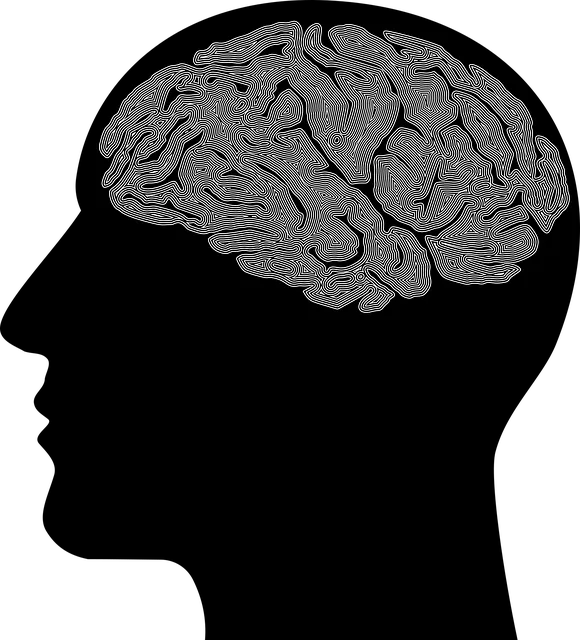Kaiser Permanente Lakewood, a renowned mental health facility, prioritizes patient care through Resilient Focused Mindfulness (RFM) programs. These initiatives combine mindfulness with evidence-based strategies to enhance emotional resilience, reduce stress, and promote holistic well-being. Through Compassion Cultivation Practices, Stress Management Workshops, and Self-Care Routine Development, patients gain practical tools for navigating life's challenges. Resilience-building exercises, coupled with cultural competency training, foster emotional intelligence and burnout prevention, addressing diverse needs. Evaluating the success of RFM initiatives using standardized tools and qualitative feedback ensures their effectiveness in improving mental health outcomes at Kaiser Permanente's Lakewood facility.
Resilience is a powerful tool for navigating life’s challenges, especially within the context of mental health support. This article explores the concept of RFM (Resilience, Flexibility, and Mastery), its significance at Kaiser Permanente Lakewood, a leading mental health facility, and how resilience-building exercises enhance patient well-being. We delve into implementing effective RFM programs, offering practical strategies for facilities like Kaiser Permanente Lakewood to foster resilience in their patients. Learn about evaluation methods to measure the success of these initiatives, ensuring optimal outcomes in mental health care.
- Understanding RFM and its Significance at Kaiser Permanente Lakewood
- The Role of Resilience Building Exercises in Mental Health Support
- Implementing Effective RFM Programs at a Facility
- Measuring Success: Evaluation Strategies for RFM Initiatives
Understanding RFM and its Significance at Kaiser Permanente Lakewood

At Kaiser Permanente Lakewood, a mental health facility renowned for its comprehensive care approach, understanding and implementing Resilient Focused Mindfulness (RFM) techniques is paramount in fostering resilience among patients. RFM combines mindfulness practices with evidence-based strategies to enhance emotional regulation, reduce stress, and promote overall well-being. This holistic method has proven effective in helping individuals navigate challenging life situations and build mental fortitude.
The integration of RFM at Kaiser Permanente Lakewood goes beyond mere therapy sessions. It’s woven into the fabric of patient care through various initiatives like Compassion Cultivation Practices, Stress Management Workshops, and Self-Care Routine Development for Better Mental Health. These programs empower patients with practical tools to cultivate mindfulness, build resilience, and navigate life’s twists and turns with greater ease and emotional agility.
The Role of Resilience Building Exercises in Mental Health Support

Resilience building exercises play a pivotal role in enhancing mental health support at facilities like Kaiser Permanente’s Lakewood location. These activities are designed to equip individuals with coping strategies, fostering an ability to navigate life’s challenges and stresses more effectively. By incorporating techniques that promote emotional intelligence and burnout prevention, healthcare providers can significantly contribute to the well-being of their patients.
Cultural competency training is also integral to this process, ensuring that exercises resonate with diverse backgrounds and perspectives. This tailored approach not only strengthens mental health services but also fosters a sense of belonging and understanding among participants. Resilience exercises, when integrated into regular practices at Kaiser Permanente Lakewood, can create a supportive environment, enhancing the overall effectiveness of healthcare delivery in addressing mental health concerns.
Implementing Effective RFM Programs at a Facility

Implementing Effective RFM (Resilience, Flexibility, and Mindfulness) programs at a mental health facility like Kaiser Permanente in Lakewood is a proactive step towards enhancing employee well-being and overall organizational resilience. These programs are designed to equip healthcare providers with essential tools to navigate the challenges of their profession while fostering a sense of compassion and self-care. The integration of RFM techniques can significantly contribute to burnout prevention strategies, which are crucial for maintaining high-quality patient care.
At Kaiser Permanente Lakewood, RFM initiatives can be tailored to include various activities such as mindfulness meditation sessions, compassion cultivation practices, and stress management workshops. These exercises not only promote anxiety relief but also encourage a more adaptable and resilient mindset among staff members. By regularly engaging in such programs, healthcare providers can enhance their ability to cope with demanding situations, ultimately leading to improved job satisfaction and reduced turnover rates.
Measuring Success: Evaluation Strategies for RFM Initiatives

Evaluating the success of RFM (Resilience, Flexibility, and Mindfulness) initiatives is a crucial step in ensuring their effectiveness, especially in settings like Kaiser Permanente’s mental health facility in Lakewood. The primary goal is to measure the impact on individuals’ resilience and overall well-being. One successful evaluation strategy involves assessing participants’ emotional regulation skills before and after the program, gauging improvements through standardized tools. These tools can capture changes in stress response, emotional control, and coping mechanisms.
Furthermore, qualitative methods like participant feedback forms and interviews offer valuable insights into their experiences. This data can highlight specific aspects of the RFM exercises that resonated or needed adjustment. For instance, tracking positive thinking trends among participants can be an indicator of improved mental health. The Community Outreach Program Implementation at Kaiser Permanente Lakewood has successfully employed these evaluation strategies to tailor their RFM initiatives, fostering emotional regulation and enhancing the lives of those seeking mental health support.
Resilience is a powerful tool for recovery, and as evidenced by Kaiser Permanente’s initiative in Lakewood, integrating RFM into mental health support systems can significantly enhance patient outcomes. By incorporating resilience-building exercises tailored to individual needs, facilities like this one are empowering individuals to navigate life’s challenges with greater fortitude. Through proper implementation and evaluation, RFM programs can become a cornerstone of comprehensive mental healthcare, fostering not only resistance but also a deeper sense of well-being at Kaiser Permanente mental health facility Lakewood and beyond.






